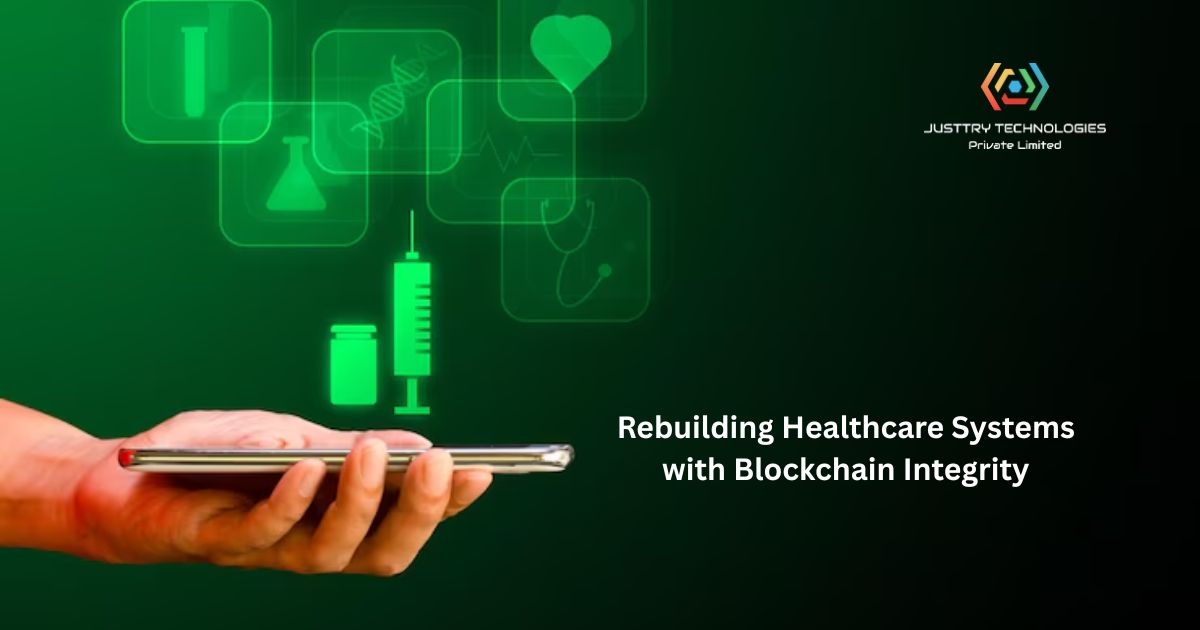Blockchain for Healthcare Data Management: Applications and Transformation

In the digital age, data is the backbone of healthcare—but managing it effectively, securely, and ethically remains a monumental challenge. Electronic Health Records (EHRs), diagnostic data, insurance details, and clinical research outcomes all move through complex ecosystems that are often fragmented, insecure, and opaque. Enter blockchain technology, a decentralized and immutable ledger system with the potential to revolutionize how healthcare data is managed, accessed, and protected.
As demand grows for smarter, more transparent data infrastructure, blockchain technology for healthcare is proving to be more than a buzzword—it's an essential tool for building the next-generation healthcare system.
1. The Current Crisis in Healthcare Data Management
Today's healthcare infrastructure is riddled with inefficiencies. Patient information is siloed across different providers, systems lack interoperability, and communication between stakeholders is often delayed or lost altogether. As a result, clinicians struggle with incomplete patient histories, leading to misdiagnosis, redundant tests, and delayed treatment.
Meanwhile, cyberattacks on healthcare databases are increasing. With billions of patient records stored digitally, healthcare has become a top target for hackers. Traditional databases are vulnerable to breaches, and the consequences range from identity theft to fatal errors in treatment. Add to this a lack of transparency and patients’ limited control over their own data, and it's clear that healthcare is in dire need of a data management overhaul.
2. Blockchain Technology: A New Model for Trust and Transparency
Blockchain technology introduces a secure, transparent, and decentralized method of recording and managing data. Every piece of data added to a blockchain is timestamped and immutable—meaning it cannot be altered or deleted without consensus across the network. This ensures unparalleled integrity and traceability.
For healthcare, this means creating tamper-proof medical records, verifiable supply chains, and streamlined consent management. With no single point of failure, the system becomes vastly more secure than conventional databases. Each participant in the network—hospitals, labs, insurers, patients—can access consistent data in real time without compromising privacy.
3. Real-World Applications of Blockchain in Healthcare
1. Secure Sharing of Electronic Health Records (EHRs)
Using blockchain, patient data can be securely shared among authorized healthcare providers without fear of manipulation or exposure. Patients can grant and revoke access using private keys, maintaining control over their records. This seamless data portability enables better collaboration between providers and faster, more accurate treatment.
2. Clinical Trials and Research Integrity
Blockchain ensures the credibility of clinical trial data by recording every stage of the process—patient consent, data entry, trial results—with immutable timestamps. This prevents data manipulation, ensures ethical compliance, and enhances transparency for regulatory agencies and the public.
3. Pharmaceutical Supply Chain Monitoring
Fake and counterfeit drugs are a global issue, endangering millions. Blockchain can track a drug's journey from manufacturer to pharmacy, verifying each handoff. This transparency helps eliminate counterfeit products, ensures drug safety, and improves recall management.
4. Patient Consent and Data Privacy
Managing consent through blockchain is simple and automated via smart contracts. Patients can easily specify what data can be shared, with whom, and for how long—enhancing data autonomy and legal compliance with frameworks like HIPAA and GDPR.
4. Why Blockchain is Transformative
The application of blockchain healthcare systems improves more than just data security. It facilitates faster access to comprehensive health information, enabling precision medicine and improved patient outcomes. It also reduces administrative burdens—cutting down on redundant paperwork, billing disputes, and manual verifications.
Moreover, trust is reestablished between patients and healthcare systems. Knowing their data is secure, accurate, and used ethically, patients are more likely to engage with their care and share vital health information.
5. The Role of Blockchain Development Services
Behind these advanced implementations are blockchain development service providers. These specialists build custom blockchain solutions tailored to healthcare workflows—designing systems that are scalable, secure, and compliant.
They help bridge legacy systems with modern blockchain infrastructure, enabling gradual adoption without disrupting operations. Their role is critical in ensuring that the healthcare sector doesn’t just embrace blockchain, but does so responsibly and effectively.
6. Challenges and Considerations
Despite the benefits, blockchain adoption in healthcare isn't without obstacles. Scalability remains a challenge—processing large volumes of data in real-time is still a technical limitation for many blockchain platforms. Integration with existing healthcare IT systems can be complex, requiring careful planning and investment.
There's also the issue of regulation. The legal landscape for blockchain in healthcare is still evolving, with many countries yet to formalize guidelines around its use. Until clear global standards are set, some organizations may remain hesitant to fully commit.
Conclusion
Blockchain is redefining how the healthcare industry thinks about data. From patient records to pharmaceutical logistics, its potential to bring trust, security, and efficiency is undeniable. As technology matures and adoption grows, blockchain technology for healthcare will become the cornerstone of modern medical infrastructure.
By partnering with the right blockchain development service providers, healthcare institutions can begin the transition today—building systems that not only meet current demands but also prepare for future innovation. In a world where data is power, blockchain ensures that power is secure, equitable, and in the right hands.
- Questions and Answers
- Opinion
- Motivational and Inspiring Story
- Technology
- Live and Let live
- Focus
- Geopolitics
- Military-Arms/Equipment
- Securitate
- Economy
- Beasts of Nations
- Machine Tools-The “Mother Industry”
- Art
- Causes
- Crafts
- Dance
- Drinks
- Film/Movie
- Fitness
- Food
- Jocuri
- Gardening
- Health
- Home
- Literature
- Music
- Networking
- Alte
- Party
- Religion
- Shopping
- Sports
- Theater
- Health and Wellness
- News
- Culture

